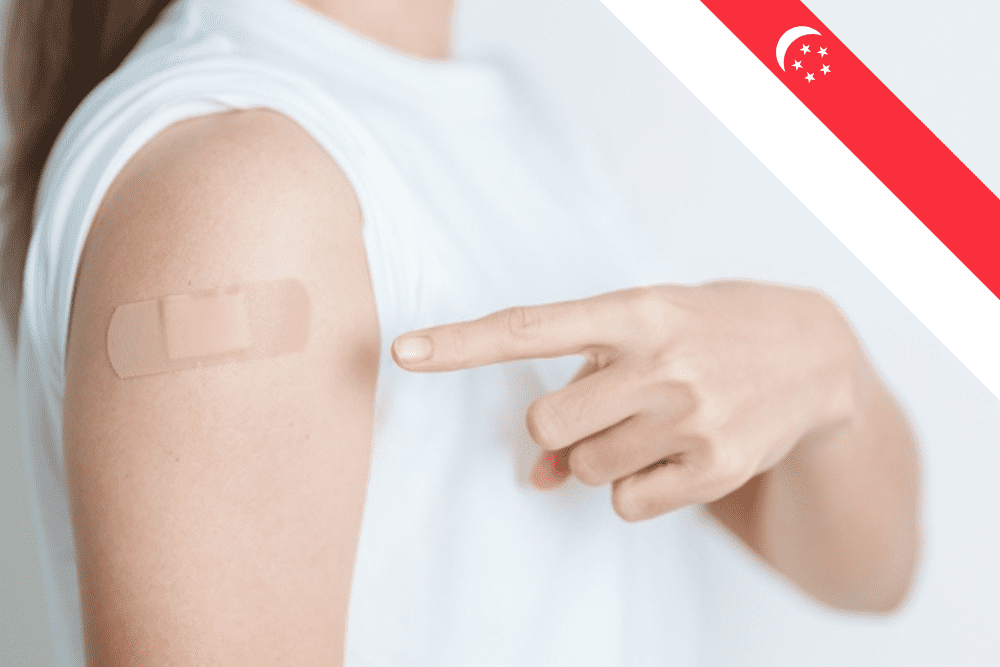The HPV vaccine in Singapore is a key measure in safeguarding your child’s health.
The vaccine is primarily offered to female students through the school-based programme, but healthcare providers recommend it for all females aged 9 to 26, including those who are homeschooled or studying overseas.
This vaccine offers vital protection against cervical cancer, closely linked to human papillomavirus (HPV) infections. Vaccinating your child early shields them from the risks associated with this serious disease. Here’s what every parent needs to know about why this vaccine is so important.
Understanding HPV and Its Risks
HPV is a widespread virus that causes several serious health problems, including cervical cancer. It spreads through intimate skin-to-skin contact and is one of the most common sexually transmitted infections globally.
Although there are over 100 types of HPV, a few are particularly dangerous. Specifically, HPV types 16 and 18 cause about 70% of cervical cancer cases worldwide, including in Singapore. These high-risk HPV types can lead to changes in cervical cells, significantly increasing the risk of cancer if not prevented or treated.
The HPV vaccine in Singapore protects against these cancer-causing types, offering crucial protection for your child. Vaccinating early significantly reduces your daughter’s risk of contracting these harmful HPV strains and developing cervical cancer later in life.
Cervical Cancer Prevention with the HPV Vaccine in Singapore
Cervical cancer is a significant health concern in Singapore, and the HPV vaccine plays a crucial role in preventing it. HPV infections, particularly those caused by high-risk types 16 and 18, are responsible for most cervical cancer cases.
The HPV vaccine in Singapore is highly effective in protecting against these types, especially when administered before any exposure to the virus. This is why healthcare providers recommend it for girls aged 9 to 26, with the school-based programme targeting Secondary 1 students aged 12 to 13. Vaccinating early ensures that your daughter is protected against cervical cancer later in life.
Cost-Effectiveness of the School-Based HPV Vaccine in Singapore
The school-based HPV vaccine in Singapore programme is also a cost-effective strategy for preventing cervical cancer. By administering the vaccine in schools, Singapore ensures that many students are vaccinated at the optimal age, which helps maximise the vaccine’s effectiveness.
The programme uses the Cervarix vaccine, chosen for its strong efficacy and affordability. While other vaccines like Gardasil provide broader protection, Cervarix effectively targets the HPV types most responsible for cervical cancer. This cost-effective approach makes the school-based vaccination programme a practical and beneficial public health intervention.
High Uptake and Coverage of the HPV Vaccine in Singapore
The structured approach of the school-based HPV vaccine in Singapore programme has led to high vaccination rates among female students. This programme is fully subsidised for Singapore citizens and permanent residents, making the vaccine accessible to all eligible students.
For girls under 15 years old, the programme provides two doses—one in Secondary 1 and another in Secondary 2. Girls aged 15 and older require three doses, with the first two administered in Secondary 1 and the third in Secondary 2. This systematic scheduling ensures that students receive the necessary protection at the right time, contributing to the programme’s success in reducing the burden of cervical cancer in Singapore.
Addressing Knowledge Gaps About the HPV Vaccine in Singapore
Despite the benefits of the HPV vaccine in Singapore, there are still gaps in knowledge and awareness among parents and students. Misunderstandings about the vaccine’s safety and its importance can hinder vaccination efforts. However, extensive research and global health organisations confirm that the HPV vaccine is both safe and effective.
Public health education is crucial in addressing these gaps, helping parents and students understand the significant role the vaccine plays in preventing cervical cancer. By staying informed and encouraging vaccination, you can ensure that your child is protected against the serious risks posed by HPV.
References
- Goei, A. Y., & Vijayalakshmi, K. (2023). Improved population coverage of the human papillomavirus vaccine after implementation of a school-based vaccination programme: the Singapore experience. Singapore Medical Journal, 64(5), 294. https://doi.org/10.11622/smedj.2022053
- Phua, L. C., Choi, H. C., Wu, J., Jit, M., Low, J., Ng, K., Pearce, F., Hall, C., & Aziz, M. I. A. (2021). Cost-effectiveness analysis of the nonavalent human papillomavirus vaccine for the prevention of cervical cancer in Singapore. Vaccine, 39(16), 2255–2263. https://doi.org/10.1016/j.vaccine.2021.03.040
- Knowledge, attitudes and practices regarding human papillomavirus vaccination among young women attending a tertiary institution in Singapore | SMJ. (n.d.). http://www.smj.org.sg/article/knowledge-attitudes-and-practices-regarding-human-papillomavirus-vaccination-among-young-student_immunisation_and_screening. (n.d.). https://www.healthhub.sg/programmes/parent-hub/student_immunisation_and_screening#:~:text=HPV%20vaccination%20is%20not%20compulsory,to%20receive%20the%20HPV%20vaccinations.

